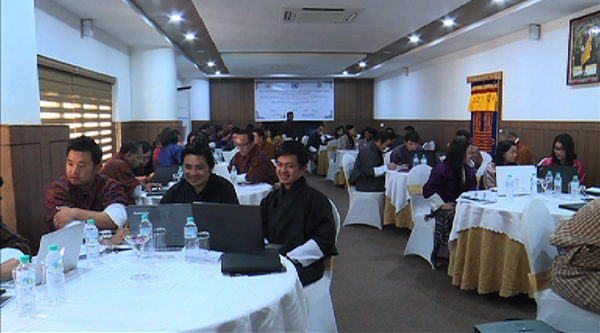 Government offices, institutions and schools across the country can now have access to high-quality international published online journals, e-books and research publications for free. This will be possible through a platform called Digital Access to Research.
Government offices, institutions and schools across the country can now have access to high-quality international published online journals, e-books and research publications for free. This will be possible through a platform called Digital Access to Research.
To strengthen national capacity and expertise in Science, Technology and Innovation through research, the United Nations in Bhutan and Faculty of Nursing and Public Health launched the platform today.
Bhutan’s development in the areas of Science, Technology and Innovation largely depends on strengthening the national higher education and research systems. But because Bhutan is a Least Developed Country (LDC), access to high-quality research and publications was constrained by high subscription costs.
It was found that due to a lack of access to quality research and information, Bhutan like any other LDC performs poorly in Science, Technology and Innovation.
“This will also help strengthen Bhutan’s self-reliance and give us the opportunity to lead front in our own development such that the young people of Bhutan can be doing some of the best research be across healthcare, agriculture or innovation and technology,” Gerald Daly, the Resident Coordinator of UN Bhutan, said.
To strengthen the capabilities of the LDC in these areas and to ensure that they are no longer left behind in achieving the development goals, the United Nations Technology Bank partnered with Research4life.
Research4life is a public-private partnership of the WHO, FAQ, UNEP, WIPO, ILO, Cornell and Yale Universities, the International Association of Scientific, Technical and Medical Publishers and up to 155 International Publishers.
It works towards reducing the knowledge gap between the high-income countries and low and middle-income countries by providing affordable access to scholarly, professional and research information in health, agriculture, environmental sciences, technology and legal sectors.
“To do the research you need current knowledge- of what is happening now and of course for free. So you will have access to the same content that the US or UK have access to. Research4life exist since 2002 and we have been training how to use these resources in more than 100 countries with very little money,” Gaby Caro Salazar, the Training Coordination Officer of UN Technology Bank for LDCs DAR, said.
Research4life programmes are accessible only to research institutions, colleges and universities, government offices, NGOs and National Libraries.
However, as Bhutan has a limited number of such institutions, even higher secondary schools are now eligible and can have access to thousands of peer-reviewed international scientific journals, books and other e-resources.
“Through these databases, we have access to what other countries have done and then how we can do that in our country. So far, many researchers and scholars were impeded from doing research because they didn’t have access to information or even if it was accessible sometimes they are expensive or they were out of date,” Dr Chencho Dorji, DEAN of FNPH, said.
Although Bhutan remained eligible to enrol in Research4life programmes for free, only a few institutions have applied. Many institutions across the country are not aware of the programmes.
So in order to advocate local institutions, NGOs, government agencies and schools about Research4life, a familiarization workshop began today in Thimphu.
During the workshop, the participants will be trained on how to access various research databases.
“We have participants from diverse agencies like agriculture, health, national library, people from the legal sector, environment. So in this Research4life programme, there are many databases related to each of these fields. They will be trained how to navigate through those databases and then also have access to whatever information or journals and data in those databases,” Dr Chencho Dorji said.
The platform is expected to empower Bhutan to become an advanced and knowledge-based society by enhancing research in the fields of agriculture, health, innovation, education, law, and environment among others.












